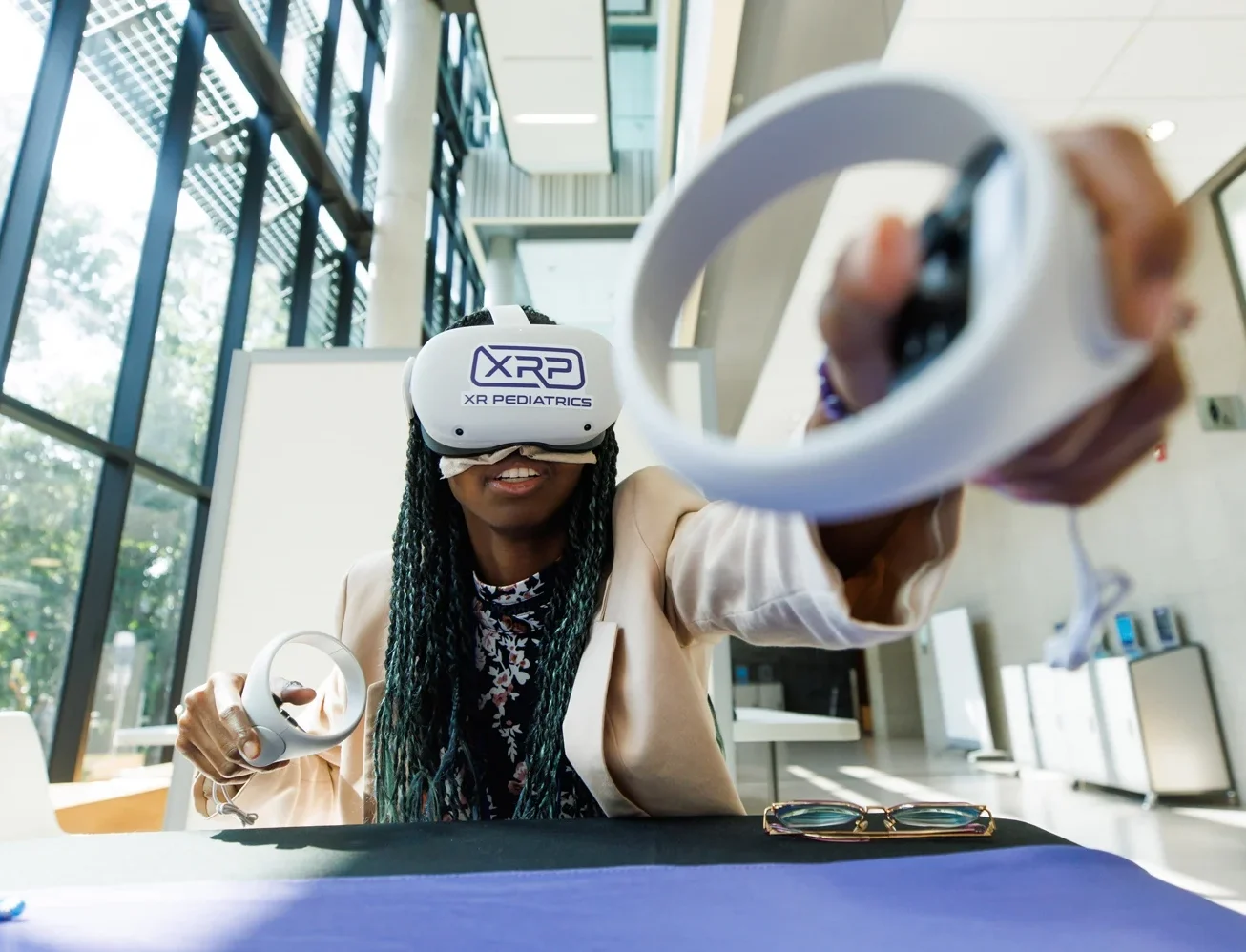In the picture above, occupational therapist Hadijat Muftau-Lediju tries out “The Cutie,” a game that teaches ICU visitors how not to spread germs. The augmented reality program, designed at Yale School of Medicine, was one of the many teaching innovations on display at Serious Play, a games-and-learning conference held this past summer at U of T Mississauga.
More than 300 scholars attended the event to hear about pedagogical applications for gaming, including how to use the classic role-playing game Dungeons and Dragons to encourage problem solving, and Minecraft, an online game, to connect students with Indigenous traditions.
“Play is one way that nature incentivizes our species to learn,” says Paul Darvasi, who lectures at OISE on games and learning and is the conference’s executive director. “Children learn through play. It’s a hyper-motivated way for them to engage in practices that are going to prepare them for participation in society.”
Attendees also learned ways to combine gaming and learning in medical care: to treat anxiety, simulate pediatric treatment and even how to use a board game called “Exit Matters” to help start end-of-life conversations.
UTM offers a program in game studies and is home to the Syd Bolton Collection, Canada’s largest video game collection.







No Responses to “ Humans Are Wired to Learn Through Gaming ”
I have always been interested in the importance of play for children, especially disabled kids that are often unable to join in. My background is in physiotherapy and occupational therapy, and then working with kids with learning disabilities. Card games between two kids or Monopoly played among four or five kids who spend years in hospitals taught me a whole lot.
I've found playing the board game Settlers of Catan with friends quite useful in trying to understand why the current form of capitalism seems to require that companies grow or eventually fail, and thus why capitalism seems to require an ever-growing economy (which is obviously a problem on a finite planet). I also see if, in the game, more cooperative and less competitive ways of playing lead to better overall results for everyone before someone "wins."
I used board games throughout my 20+ years as a special education teacher. For one program, for children with severe social and emotional needs (usually, but not always, combined with a literacy or numeracy learning disability), board games were especially useful in developing social relationship skills in a non-threatening way, i.e. turn taking, respectful language use, self-advocacy and spatial awareness, to specify a few. (The board games I used were both commercial and self-created, and both competitive and co-operative.)
More broadly, board games allowed for the use of math and literacy skills in authentic but safe situations. As a teacher, I was also able to use my observations of game play to genuinely assess ability -- in a way that was not usually possible through usual forms of test-based assessment (because "test anxiety" affected performance, which was common in this context).